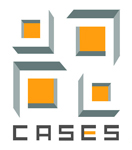WP 9 - Assessment of Policy Instruments to Internalize Environment-Related External Costs in EU Member States, Via Promotion of Renewables
Objectives
- To assess policy instruments to internalise externalities in EU Member States, via promotion of renewables;
- To investigate stakeholders preferences for policy instruments to promote renewable energy sources through a stakeholders workshop (together with WPs 8-11).
Description of work
Task 1: Synopsis of all relevant policy instruments for the promotion of renewables in the European Union trying to internalise net external benefits of renewables. (UFLENS)
Task 2: Analysis of the extent to which the different policy instruments succeed in internalising the net external benefits of renewables in year 2010, 2020, 2030. WP 1 and WP 5 contribute to the analysis with the description of the scenarios for energy use and with estimates of the risks of supply of energy in year 2010, 2020, 2030 (UFLENS).
Task 3: Analysis of the linkages between policies for the promotion of renewables attempting to internalise external net benefits and regimes for GHG emissions trading. (UFLENS)
Task 4: Analysis of the social and fiscal implications of different internalisation instruments, mainly focusing on the impacts on the most vulnerable groups in society and on the fiscal burdens created by some instruments working through positive incentive schemes on the basis of government payments. (FEEM)
Task 5: Development of suggestions to improve the possible instruments to reduce their negative social and fiscal impacts while increasing their power to achieve an extensive internalisation of the net external benefits of renewables (UFLENS, FEEM); of a suggestion for an integrated EU policy for the internalisation of the positive net external benefits of renewables (UFLENS, FEEM, RISOE). Finally, an analysis of the hidden costs of the implementation of different policy instruments for the internalisation of net external benefits of renewables is carried out (RISOE). This task is validated by stakeholders involved in stakeholder workshop 2 that exploits Cost-Benefit Analysis (CBA) and Multi-Criteria Decision Analysis (MCDA). The workshop investigates stakeholders views on policies for the internalisation of the external costs of energy production and on the promotion of renewables. Particular attention is given to policy instruments impacts on employment/competitiveness, effectiveness in achieving internalisation, administrative costs, dynamic incentives for technological innovation, flexibility of adjustment once policy introduced, distributional, equity and acceptability consequences, security of supply (NTUA).



 This website reflects only the views of the CASES Consortium and does not represent the opinion of the European Community. The European Community is not liable for any use that may be made of the information contained herein.
This website reflects only the views of the CASES Consortium and does not represent the opinion of the European Community. The European Community is not liable for any use that may be made of the information contained herein.